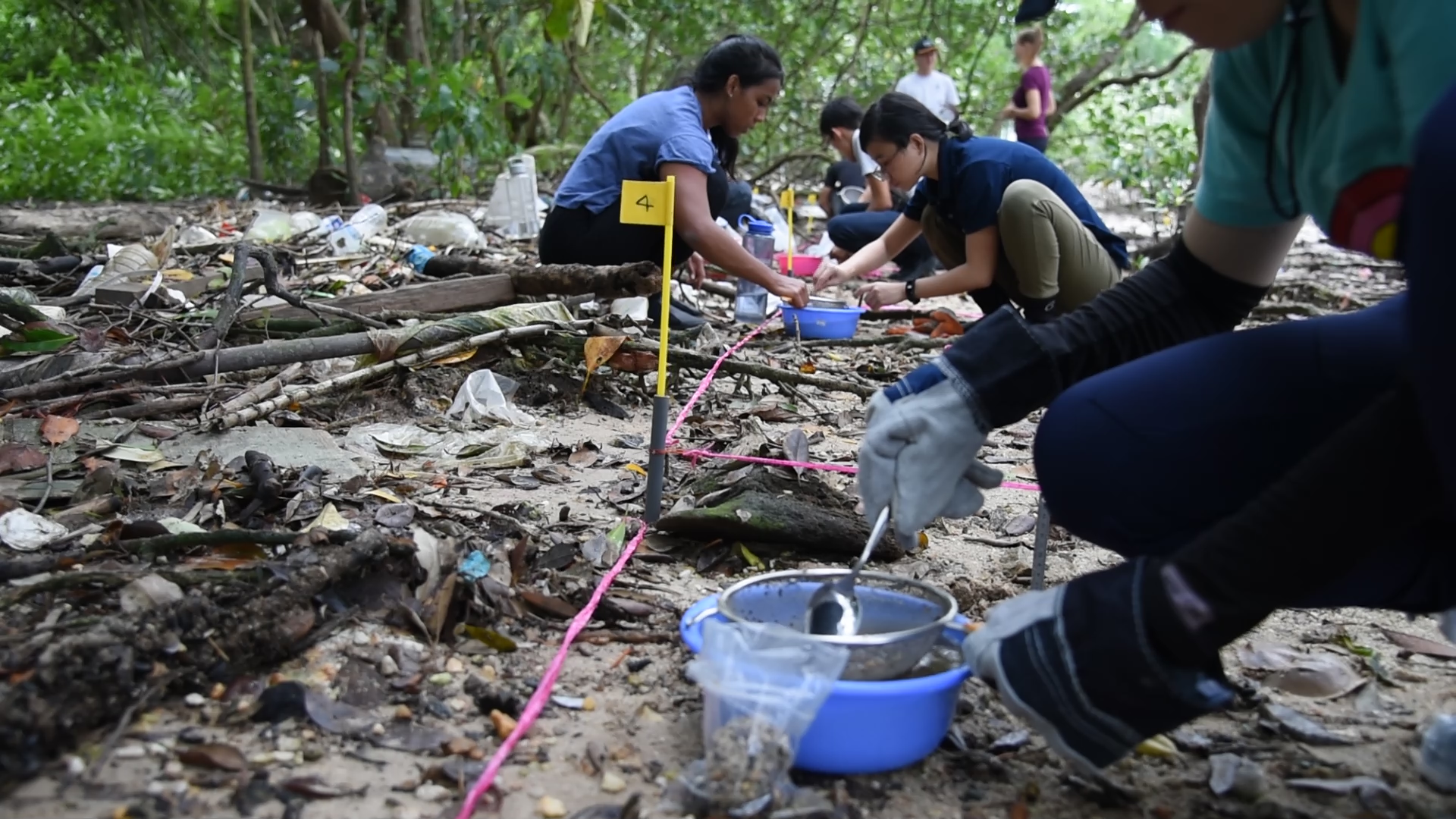Text and Photos Nathaniel Soon
Volunteer groups in Singapore are cleaning up the island nation’s beaches and waterways and helping scientists assess the scale of local marine plastic pollution.
We have all likely come across the common narrative of the boy who aspired to rid his beach of sea stars washed up and stranded at low tide. In the story, a sceptical passer-by expressed doubt about his gesturing at the tens of thousands of sea stars stretching to the horizon. The boy proverbially responded that he may not be capable of making a difference for every sea star, but at least he did for the ones that he was able to move. Parallels can be drawn to the challenges presented by the burgeoning marine debris in our oceans today: The scale of the problem often appears too overwhelming to invoke any action that one would recognise as significant, yet the widespread adoption of such a mentality only risks exacerbating the issue. “I’m not causing much harm, and I can’t do anything to help” has become the dominant rhetoric.
Yet, the numbers speak for themselves. A 2013 study by the Singapore Environmental Council, a non-governmental organisation, revealed that Singaporeans used nearly three billion plastic bags a year. The National Environmental Agency then followed up in 2017, reporting that 763,400 tonnes of plastic waste were disposed of that year but only six percent was recycled, earning Singapore the new name “throw-away nation”. Much of this plastic waste ends up in the oceans as a result of improper disposal and waste management practices. Litter that floats is then washed ashore by the tides and deposited along the high-water mark up shore while that which sinks often gets trapped among the rocky or silty substrate surrounding Singapore.
More attention has been given to ocean plastics particularly because unlike other forms of debris, they do not biodegrade but instead disintegrate into indistinguishable microplastic fragments – which when ingested by marine organisms, inevitably enters the food chain and into our bodies. Given that Singapore’s waters are a diversity hotspot with over 17,000 species of marine biota, it remains vital that these organisms are protected against plastic pollution.
How big of a problem are ocean plastics in Singapore? According to the Singapore Blue Plan 2018, research among the scientific community and awareness among people remain in their infancy – up till 2017, no fundamental protocol for microplastic monitoring in Singapore existed and many individuals still remain ignorant about its presence in products they consume. This knowledge gap spurred a collaboration between the National University of Singapore (NUS) and the National Parks Board (NParks).
Now in its third year, the marine debris monitoring programme frequently recruits volunteers to assist in monthly microplastic sampling sessions across six field sites, such as Sisters’ Island Marine Park and the mangroves of Lim Chu Kang, in hopes of uncovering marine pollution trends that can be used to establish baseline data for Singapore.
Joleen Chan, a research assistant at the Department of Biological Sciences in NUS, spearheads this citizen science project. “By engaging volunteers, it is a win-win situation as researchers get scientific data to answer important questions and participants benefit as they get to experience pressing environmental issues first-hand and learn more through interactions with scientists,” she says.
For the rest of this article (Asian Geographic No.134 Issue 1 /2019 ) and other stories, check out our past issues here or download a digital copy here
The 25th anniversary of the largest and longest running dive show, Asia Dive Expo (ADEX) is set to occur on the 11-14th April 2019. Centred on the theme – Plastic free Future, ADEX is more than just a dive show with its commitment to the environment. Among an exciting lineup of programs, attendees can look forward to a Future Forward Series of Panel Discussion on the Single-Use Plastic Conundrum in Asia, on 13th April.
So join us at the event, get inspired and for all you know, you might just liberate the inner diver in you! More details of the event here.
